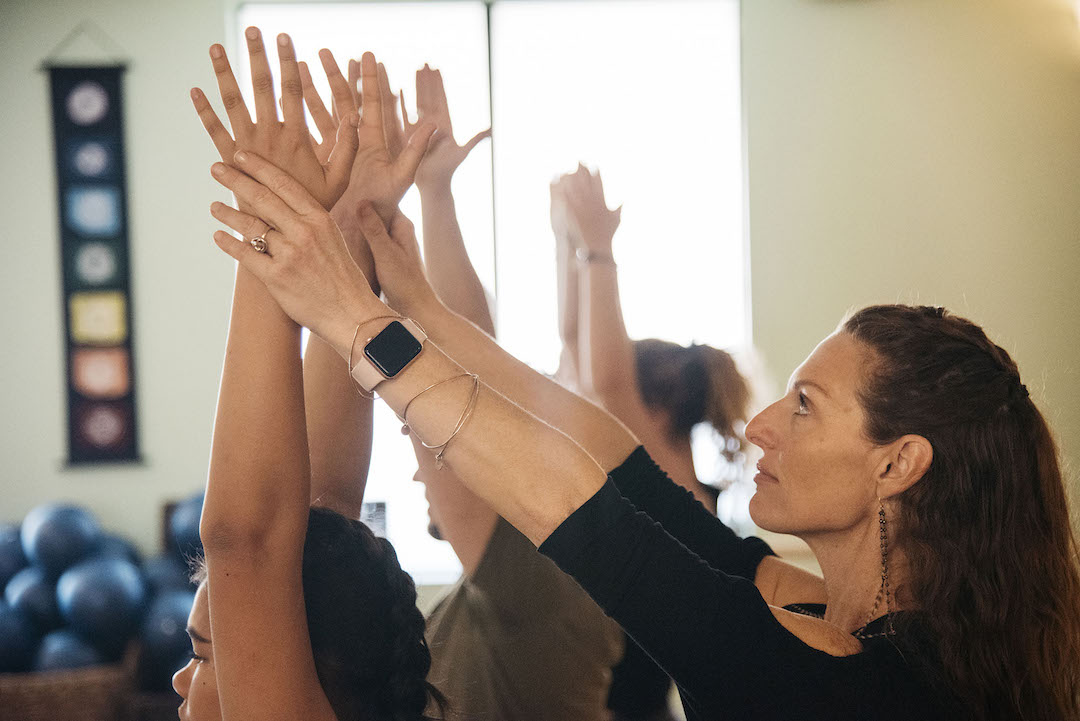How yoga can impact students’ mental health

Struggles with mental health are not uncommon for college students as they simultaneously balance classes, relationships, their well-being and more. A coping mechanism some Cal Poly students have turned to to better their mental health is yoga.
As a kid, anthropology and geography freshman Kate Kohnstamm began practicing yoga with her mom, a certified yoga instructor.
“It’s such a cool way to exercise because it’s so positively focused around your mental health,” Kohnstamm said. “It’s not about comparing or necessarily showing off — it’s about growing personally.”
Clinical counselor with Cal Poly’s Campus Health and Wellbeing (CH&W) Dr. Isaac Brandt teaches the “Yoga for Mental Health” class on the Health Center Lawn on Thursday afternoons. He said there are mental, emotional and physical benefits to practicing yoga.
“There are improved stress levels that might improve mental clarity, blood pressure and a lot of that stuff,” Brandt said.
A lot of yoga’s mental health benefits can be observed through those who practice and teach it.
“My old teacher — and this is not science, per se — but he used to say if you practice once a week, you can have some sense of maintenance and homeostasis,” Brandt said. “You practice twice a week, you’ll notice small amounts of growth.”
Brandt specializes in attention-deficit hyperactivity disorder (ADHD) counseling, and he brings this knowledge into his yoga classes.
“Folks who are with ADHD tend to be quite highly emotionally sensitive, so it doesn’t take much to feel pretty uprooted, dysregulated and emotionally thrown off,” Brandt said. “That consistent yoga practice really helps your capacity to learn.”
Brandt also spoke on his own experiences practicing yoga with ADHD.
“Yoga is cool because it allows you to move that physical energy while also maintaining that yogic edge of mindfulness and stillness while moving,” Brandt said.
Victoria Kromhout is another yoga teacher in San Luis Obispo. She has gone through extensive training within the U.S. and India, where she also leads retreats.
Teaching classes at The Center SLO and Cal Poly’s Recreation Center, Kromhout said yoga helps students facing pressure to “figure out life” and compete with others.
“For them to come in and just be at peace for a minute, it’s literally the reason why I do it,” Kromhout said. “For no other reason — just to give them some relief from that pressure, that stress, that anxiety, and I get to see it in real-time.”

Kromhout said it’s important for her to consider student feedback to see how she can best prioritize their well-being during her classes.
A student recently asked Kromhout if she could incorporate the Savasana posture, or corpse pose, into the end of class. This posture is traditionally done at the beginning or end of a yoga class to allow the body to fully relax and lay heavy on the ground.
“I realized that the action of ringing out their bodies, getting the action of moving and creating something strenuous — just so that they can lay down on the ground, get comfortable and just kind of forget everything — has a massive impact on their mental health and their wellbeing,” Kromhout said. “They step out of the drama, they get out of the spin and the swirl and all of the regrets and the fears and the anxiety and the crippling movement of the mind to just step away for a minute.”
CH&W hosts Yoga For Mental Health every Thursday from 3:10 to 4 p.m. on the Health Center Lawn (Building 27). More of their events, including support groups and mental health workshops, can be found here.
Those interested can find the Recreation Center’s Mind and Body classes here.

